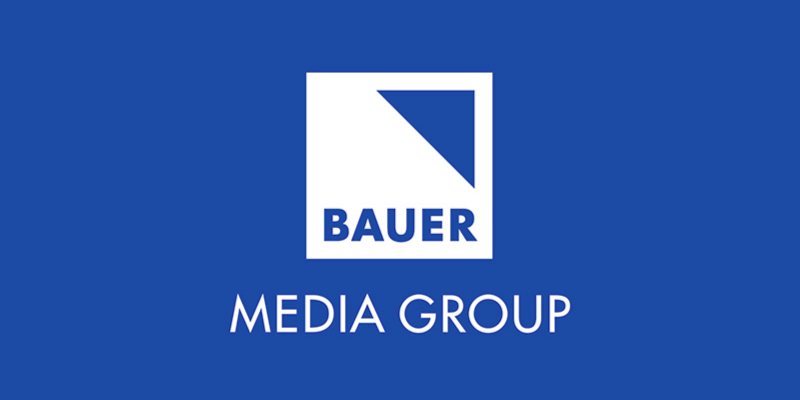
CMA reveals industry response to Bauer radio group takeovers
The Competition and Markets Authority has published a series of documents outlining responses to its investigation into the takeover of four local radio group by Bauer Media.
A final decision is due by 17th March this year as to whether Bauer can take control of UKRD, Lincs FM Group, Celador Radio and Wireless’ local stations. One of the main sticking points has been the 50% share of First Radio Sales acquired by Bauer as part of their purchases.
In its latest response to the CMA, Bauer says it would offer a ‘minimum revenue guarantee’ to existing FRS stations who choose to use Bauer for their national sales, meaning revenue would be at or above the same levels as in 2019 for a period of 5 years.
On the issue of local sales in Wolverhampton, Bauer maintains that it shouldn’t need to sell the 107.7 FM licence for the town, currently broadcasting as part of Signal 107. But it has told the CMA that it would be willing to divest the licence if required – along with the leasehold to the studio facility in the town, Signal 107 brand, web domain names, six key business contracts and the permanent members of staff. Bauer suggests the licence could operate as a going concern on its own, but adds that it would be prepared to sell one, two or three of the other licences which make up the Signal 107 station (Telford, Shrewsbury, Kidderminster) should a potential buyer want more than just one licence.
In its submission to the CMA, Bauer says it considers the Wolverhampton licence to be a viable standalone business (as it was as 107.7 The Wolf pre-2012). It states: “If Bauer is unable to find a buyer for the Divestment Business, Bauer is willing, as a fall back, to sell a package of Signal 107 licences comprised of up to and including all four Signal 107 licences and the associated business to manage and operate those licences. Bauer believes that this package would be highly attractive and therefore an effective remedy.”
Bauer’s Dee Ford, Group Managing Director – Radio, told RadioToday: “Our focus remains on agreeing a route forward with the CMA that supports a strong, sustainable future for the local commercial radio sector. The offer that we are making to provide representation to FRS customers is, we believe, compelling and effectively addresses the CMA’s concerns.”
Responses from other interested parties – including FRS member stations – have been published by the CMA today as well. 10 customers of FRS expressed positive views, subject to certain caveats described in their responses; 3 said they would prefer a ‘structural remedy’ (ie. Bauer to sell its share in FRS); and one was sceptical of a behavioural remedy but didn’t comment on a structural remedy. Here’s a summary of some of the responses given to the CMA, which were sent before knowing Bauer’s latest proposals for national sales representation:
Star Radio in Cambridge says it would be happy to be represented by Bauer for national sales, adding that it would be ‘better served now being represented as part of the Bauer Hits Radio network’ and that “Bauer will now present a viable, coherent alternative to Global” in the East of England as a result of its purchase of stations previously run by Celador and UKRD.
Tindle CI Broadcasting (owner and operators of Channel 103 in Jersey and Island FM in Guernsey) says it would be ‘content to be represented by Bauer Radio Sales in the event that FRS ceases trading’, adding that representation by Bauer could ultimately end up being positive given the comparative scale of Bauer’s station in the south of England compared to the FRS portfolio.
Media Sound Holdings (which owns More Radio in Sussex), suggests there would need to be some monitoring or control to ensure that non-Bauer stations were getting the same treatment/service as their own stations. “I wonder if there could be some form of measure that could be used to monitor this,” writes MD Allan Moulds in his response. “So for example: compare the current return per listening hour from FRS to that achieved by Bauer using that as a benchmark. Bauer then commits to maintain that ratio as a minimum going forward. They seem to indicate in your findings that they could do a better job at national sales than FRS due to their scale, so maintaining the status quo should not be too onerous. The beauty of a ratio is that it allows for the ups and downs of trading. This could be reported quarterly in line with RAJAR.”
Nation Broadcasting‘s response is heavily redacted by the CMA but does say that it believes the terms of a new Bauer national sales agreement for FRS member stations ‘must be the same or better than FRS – namely that stations are participants in RAJAR (or equivalent national audience survey) and at an equivalent or better rate of commission’. Nation also disagrees with Bauer’s view that the Wolverhampton FM licence would be viable on its own without the other three licences which make up Signal 107.
Credible Media – owner of Oldham station 96.2 The Revolution – has told the CMA it was in touch with Bauer in December about the possible purchase of Signal 107. It also says it would be interested in purchasing other assets such as Wish FM, Wire FM and Tower FM, and has spoken with a corporate finance company and its bank about funding such purchases. The company also says it would be keen to explore the options of taking Bauer’s acquired 50% share in FRS – which Credible Media proposes it could run from its Manchester office and work with the other remaining smaller groups to enable FRS to continue and compete with Global and Bauer. Two other suggestions from Credible on remedies for FRS are that it could run it and continue to sell national airtime to the acquired Bauer stations which are currently part of FRS – or that an FRS representative could be seconded into Bauer’s national sales team to ensure that FRS clients receive the same treatment as Bauer-owned stations.
Dee Radio Group – operator of Dee 106.3 and Silk FM – says it ‘would be content with representation by Bauer’, subject to there being certain safeguards – one of which should be the guarantee of a deal at least as favourable as the deal received through FRS, with a guarantee of terms for a ‘significant period of time’. DRG also suggests the minimum revenue guarantee should be proportional to the amount of inventory sold to prevent Bauer selling lots of its airtime slots cheaply. On the Wolverhampton issue, Chris Hurst told the CMA that he couldn’t recall The Wolf ever making a profit, and that it’s not clear that adding the other three licences to make Signal 107 ‘improves the situation very much’. He also highlights the arrival of a Small-Scale DAB multiplex in Wolverhampton in the future, which would render any lessening of competition temporary.
KM Group supports the idea of Bauer taking over national sales from FRS, highlighting that it would be able to sell inventory more effectively as it already has a larger and stronger network. “This is KM Group’s preference, provided Bauer is contractually bound to represent third parties fairly and potentially looks to offer some form of contractual agreement or underwriting to maintain or grow performance,” it says. KM suggests a structural remedy (ie. selling of FRS to a different company) would be ‘complex and take a long time to implement’, which is ‘unlikely to favour KM Group’.
CommunicorpUK disagreed with the CMA finding that there was an issue with local advertising in Wolverhampton, citing data showing the decline in local radio advertising revenue as clients move their spend online instead. It says it believes local radio advertising is part of a wider local advertising market and as such there is no competition issue. On FRS, Communicorp suggests that even without Bauer’s acquisitions, FRS would not have a viable future. The group writes: “We would agree that absent the revenue from the stations acquired by Bauer and assuming the continued specialism / reliance on revenue from radio advertising, that FRS would exit the market, as a result of the merger, sooner than if it continued at the current levels of revenue/ number of stations. However, given the more significant impact on local radio stations of recent local revenue declines, we would expect regardless that the current acquisition and consolidation of independent radio stations by larger radio groups to continue in the near future and that a financial tipping point would be reached more quickly by FRS than 10 years.
And in a lengthy response, Global argues that the CMA’s conclusions on the viability of FRS are inaccurate. It says that evidence shows stations represented by FRS have expanded their reach and listening hours, and that FRS has won the business of new digital-only stations which it now represents. Global says the ‘likelihood of a material number of FRS stations seeking alternate representation is likely overstated’. Global also highlights that no stations have left FRS in the past five years as a result of concluding a national sales representation agreement with Bauer – and that the only stations to move from FRS to Global are stations acquired by Global or Communicorp, as well as Quidem which has entered a brand licensing agreement with Global. “We agree that Bauer is a potential competitor to FRS but we do not believe that there is any evidence to suggest that, absent the acquisitions, FRS’ viability would in any way be at risk because of stations leaving FRS for Bauer. No objective or verifiable evidence has been advanced in the CMA’s provisional conclusions to sustain this hypothesis,” says Global.
Global’s solution proposed to the CMA would be for the 50% share of FRS acquired by Bauer to be sold on to another company, along with a number of the radio stations represented by FRS from the four local radio groups Bauer seeks to take control of. “We consider that it is important that the purchaser of the 50% shareholding in FRS also acquires a substantial proportion of the divested radio stations. Indeed, while it may not be essential, Global believes that a single purchaser for the entire divestment package would ensure FRS remains independently competitive.”
You can see all the responses on the CMA website here.
The four groups – and First Radio Sales – will have to continue operating under ‘hold separate’ terms for the time being. The CMA has indicated that it will publish its final report in late February/early March, though it has until the statutory deadline of 17th March 2020 to do so.
Bauer announced its purchases of Lincs, Celador and the Wireless stations in the same week in February last year, before buying UKRD a few weeks later.
Posted on Wednesday, January 22nd, 2020 at 3:40 pm by Stuart Clarkson & Roy Martin


